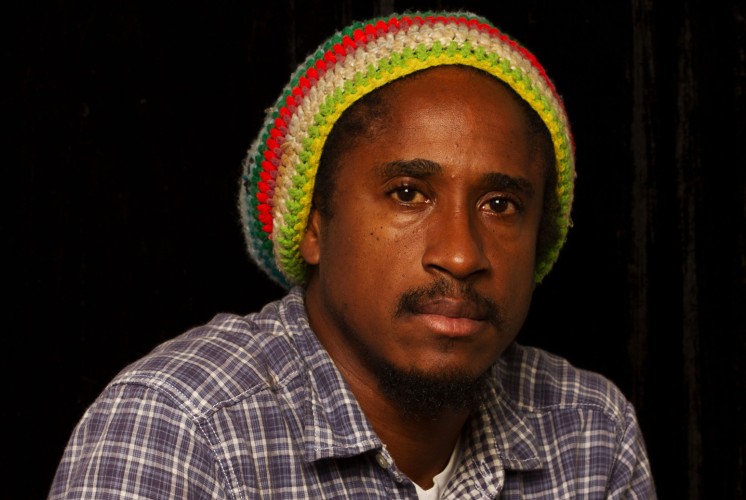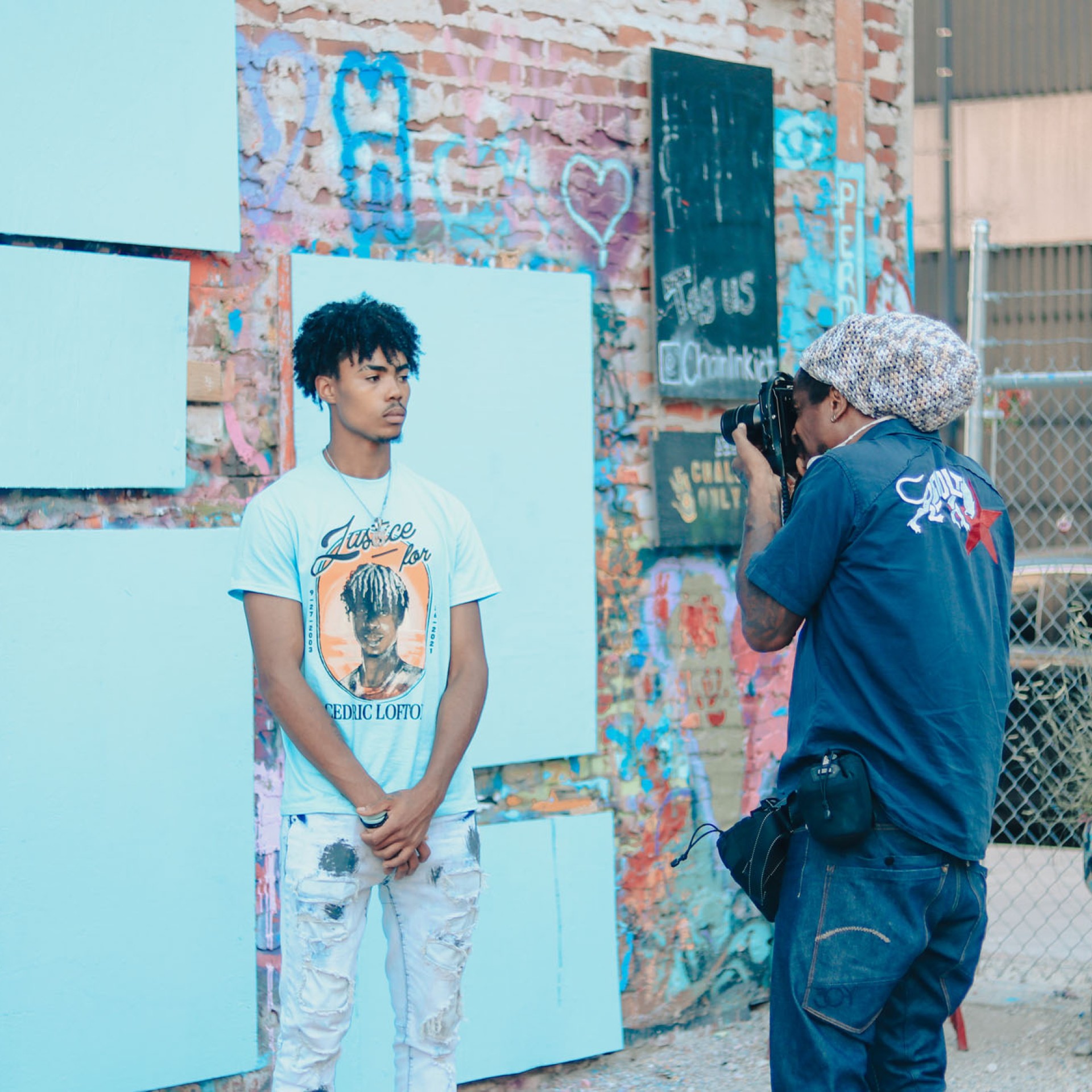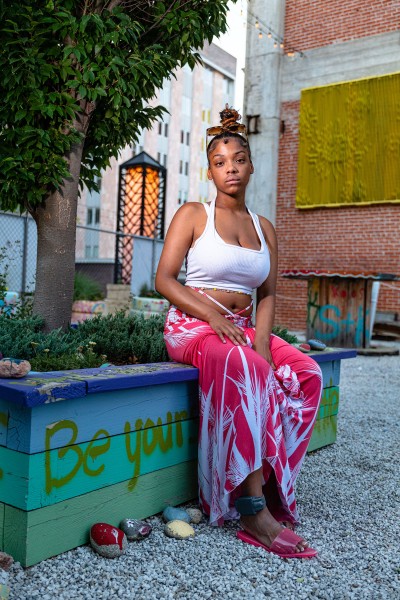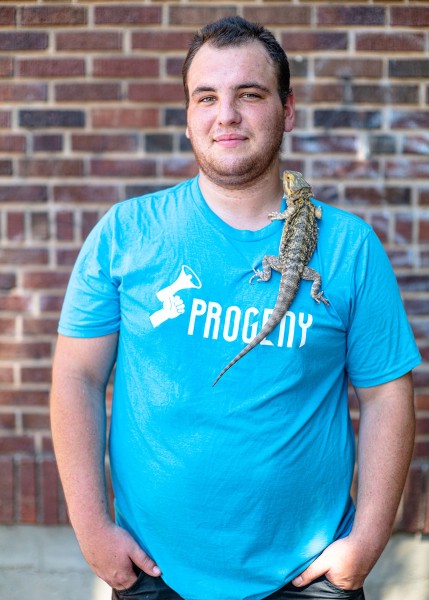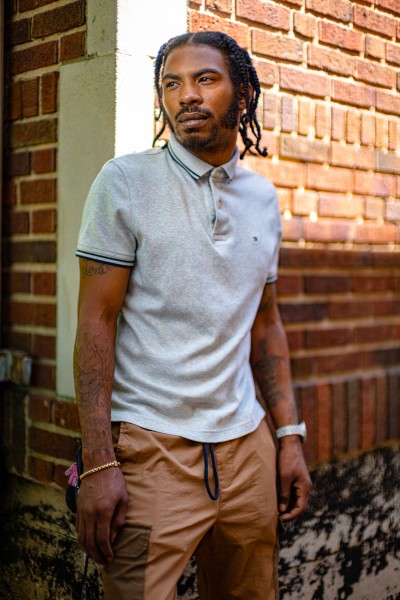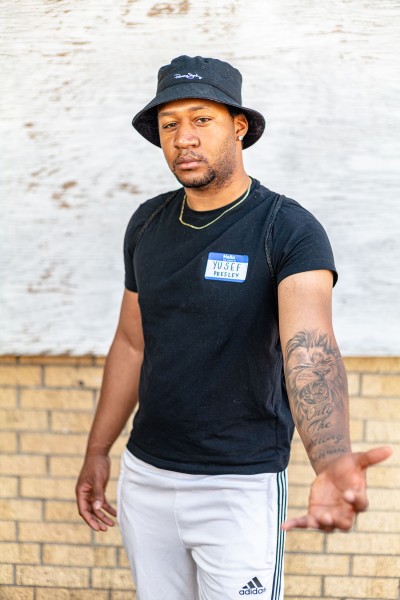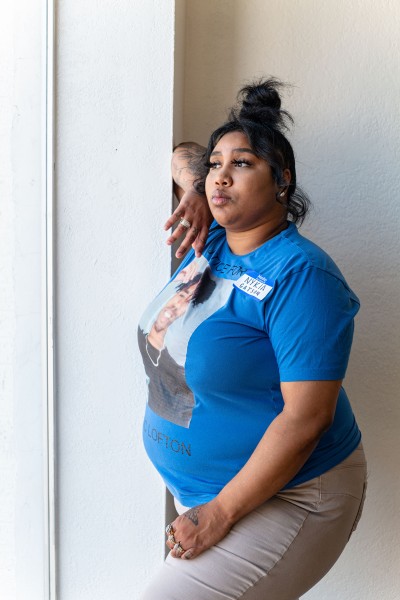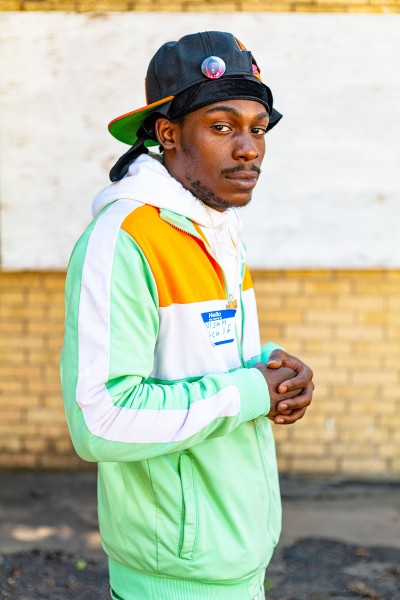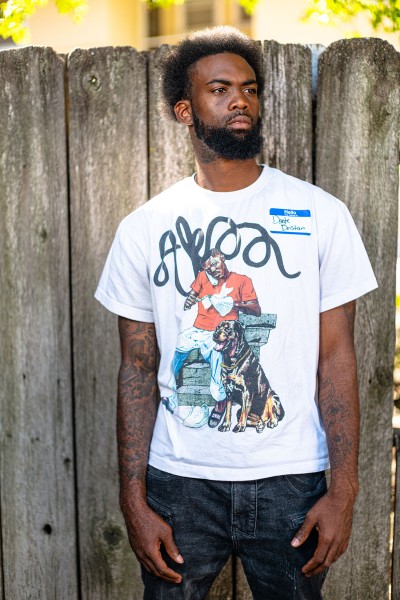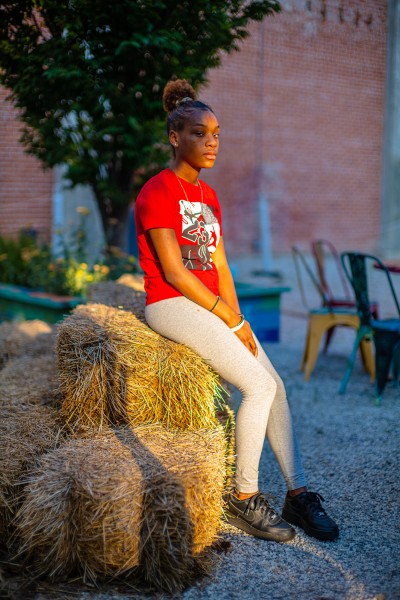How would you describe the work that Debt Free Justice and Progeny are doing and its importance in the broader social context?
You answered the question. By using the word important, you've already answered it. As somebody who is doing work in the Black community, I was very taken aback and kind of ashamed that I did not know the depth that this problem was causing our young people. And so I was really happy to see that there are groups, both Debt Free Justice and Progeny, who were instrumental in creating such leadership qualities in the young people that I spoke to. It is important work because it pulls a generation out of systemic poverty and moves them to a place where they can have independence.
How did the youth that you interviewed and photographed feel about the idea that you wanted to tell their stories?
Everybody that I interviewed felt empowered to share. It felt like a true collaboration. I mean, everybody I spoke to wanted to share their story in a way where it would inform other young people that there is a choice. There is an alternative and you don't have to be saddled or stay saddled with this debt.
What were the most common underlying themes you heard that day?
The weight. Something that someone said that really struck me were the choices he had to make. One of the choices he had to make was driving illegally in order to take care of his family. He did it knowing what the repercussions would be, but still choosing to drive illegally. That blew my mind because you know that anything can happen and yet you choose to do what is illegal. That blew my mind. That is what, When Living is a Protest is. Your life is in protest to systemic racism.
You mentioned one of them already, but what were some of the most palpable stories that you heard that day?
I don't think there was a story that was more compelling than the other. Nijah’s story, he was able to identify article by article. He could explain to me how he fell into the trap of avoiding to pay, because it was just too much for him to pay. He was able to look at a piece of paper in front of him and say to me, “This is like $1,400 worth of fixed stuff that I won't be able to pay. And as a result, every time I walk out the door, I run the risk of being arrested and sent to jail.” Every time he walks out.
How did hearing the stories affect you personally and professionally?
Personally, as I said, it made me feel like there's so much to learn. There's so much I thought I knew about my community and there's so much still to learn about my community. There's so much work that's meant to be done. And that could be the professional part. Like, I cannot rest. I still have to be in the trenches trying to figure out how I can shed light on what is irking or what is ailing my community.
